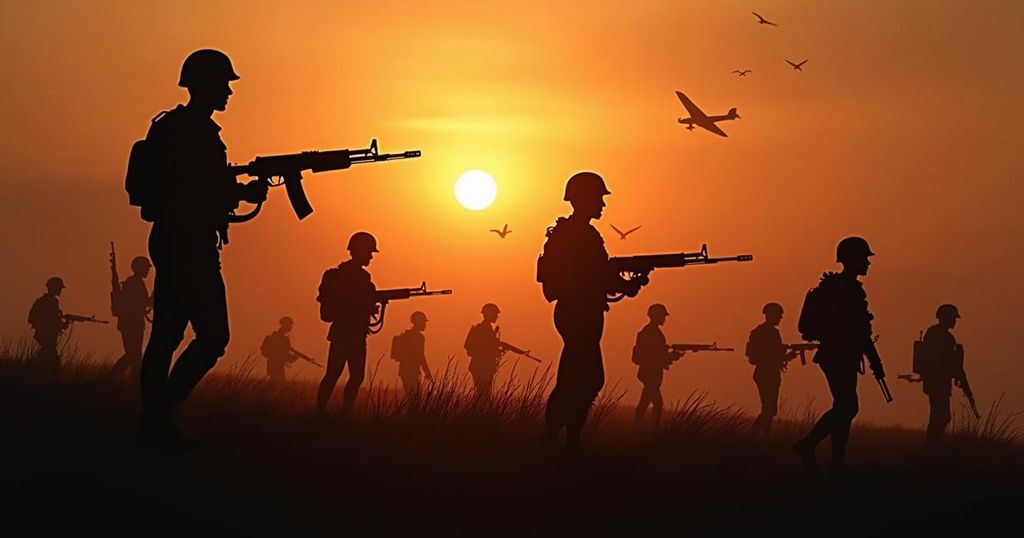Sudanese Army Refutes UAE Claims of Attack on Ambassador’s Residence
The Sudanese army denies allegations from the UAE of an attack on its ambassador’s residence, blaming the paramilitary RSF instead. This conflict exacerbates an already critical humanitarian situation in Sudan, where millions require aid. Reports imply possible foreign involvement, further complicating the crisis.
The situation in Sudan has escalated following claims made by the United Arab Emirates (UAE) regarding an alleged airstrike targeting the residence of its ambassador in Khartoum. The UAE’s foreign ministry condemned what it referred to as a “heinous attack” resulting in significant damage to the ambassador’s residence. In response, the Sudanese army has categorically denied these allegations, asserting instead that the paramilitary group, the Rapid Support Forces (RSF), is responsible for the attack. This acknowledgment comes amid ongoing violent clashes between the Sudanese military and the RSF, which have been at a stalemate since April of last year as both factions vie for power and influence in the region. The Sudanese military issued a statement emphasizing that their operations do not include targeting diplomatic missions or residences, declaring, “it does not target the headquarters of diplomatic missions, United Nations agencies or voluntary organizations and does not turn them into military bases and loot their assets.” Furthermore, they labeled the RSF as a “terrorist, rebel militia” backed by foreign nations accused of providing military support. This conflict in Sudan is compounded by other humanitarian crises, as nearly 25 million people require assistance, famine looms, and approximately eight million individuals have been displaced from their homes due to the ongoing warfare. Furthermore, the country is experiencing a cholera outbreak exacerbated by recent flooding. The situation remains dire as both local and international observers call for more effective interventions to mitigate human suffering.
The current conflict in Sudan centers around a power struggle between the Sudanese military and the Rapid Support Forces (RSF), which has persisted since April 2023. The RSF emerged as a prominent player in the political landscape following the overthrow of the previous regime, competing with the military for control over Sudan’s future governance, including a transition towards civilian rule. The involvement of foreign entities, notably the UAE, adds a layer of complexity, as allegations of military support for the RSF have surfaced despite the UAE’s denials. This conflict has led to severe humanitarian consequences, creating a demand for international aid and assistance to address the staggering needs of the Sudanese population.
In summary, the Sudanese army’s denial of the alleged attack on the UAE ambassador’s residence reflects the ongoing tensions and violence between the military forces and the RSF in Sudan. With serious humanitarian repercussions, including mass displacement and health crises, the conflict continues to pose significant challenges for the Sudanese populace and raises concerns for diplomatic relations in the region. The international community remains alert to the evolving situation, recognizing the urgent need for measures to restore stability and protect humanitarian interests.
Original Source: news.sky.com




Post Comment